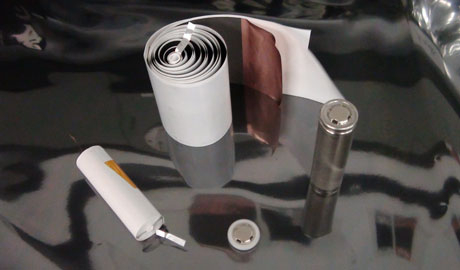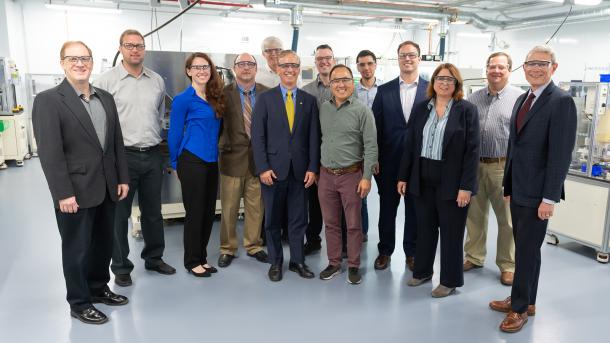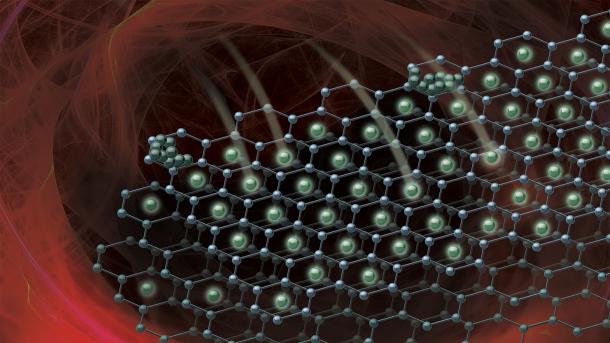Engineering Research is a multi-disciplinary group focused on demonstrating the feasibility of advanced electrochemical energy storage materials and systems in real world applications.
Engineering Research combines capabilities in electrochemical transport modeling, techno-economic modeling, materials validation and diagnostics, and prototype fabrication.
Engineering Research is well-integrated with many of the battery research projects within the Electrochemical Energy Storage theme. We work closely with scientists who create new advanced battery materials by providing an engineering perspective on the merits and limitations of different battery materials. This is done utilizing a portfolio of capabilities that include:
- The Cell Analysis, Modeling, and Prototyping (CAMP) Facility, which is an integrated team designed to support production of prototype battery electrodes and cells using semi-automated cell fabrication equipment in a dry room environment. Within the CAMP Facility are activities in materials validation, modeling, and diagnostics.
- BatPaC, which is a techno-economic model primarily focused on advanced lithium-ion batteries in electrified vehicles. This is a publicly available model that can project bench-scale results to real world battery pack values and captures the interplay between design and cost of lithium-ion batteries for transportation applications.
- Electrochemical Transport Models, which involves the simultaneous solution of multiple transport equations that cover all the transport phenomena that occur in and between the electrodes. These models are used to correlate aging-related electrochemical performance degradation to physical, chemical, and structural changes, which are identified via post-test analyses, to establish life-limiting degradation mechanisms for each new cell chemistry.



